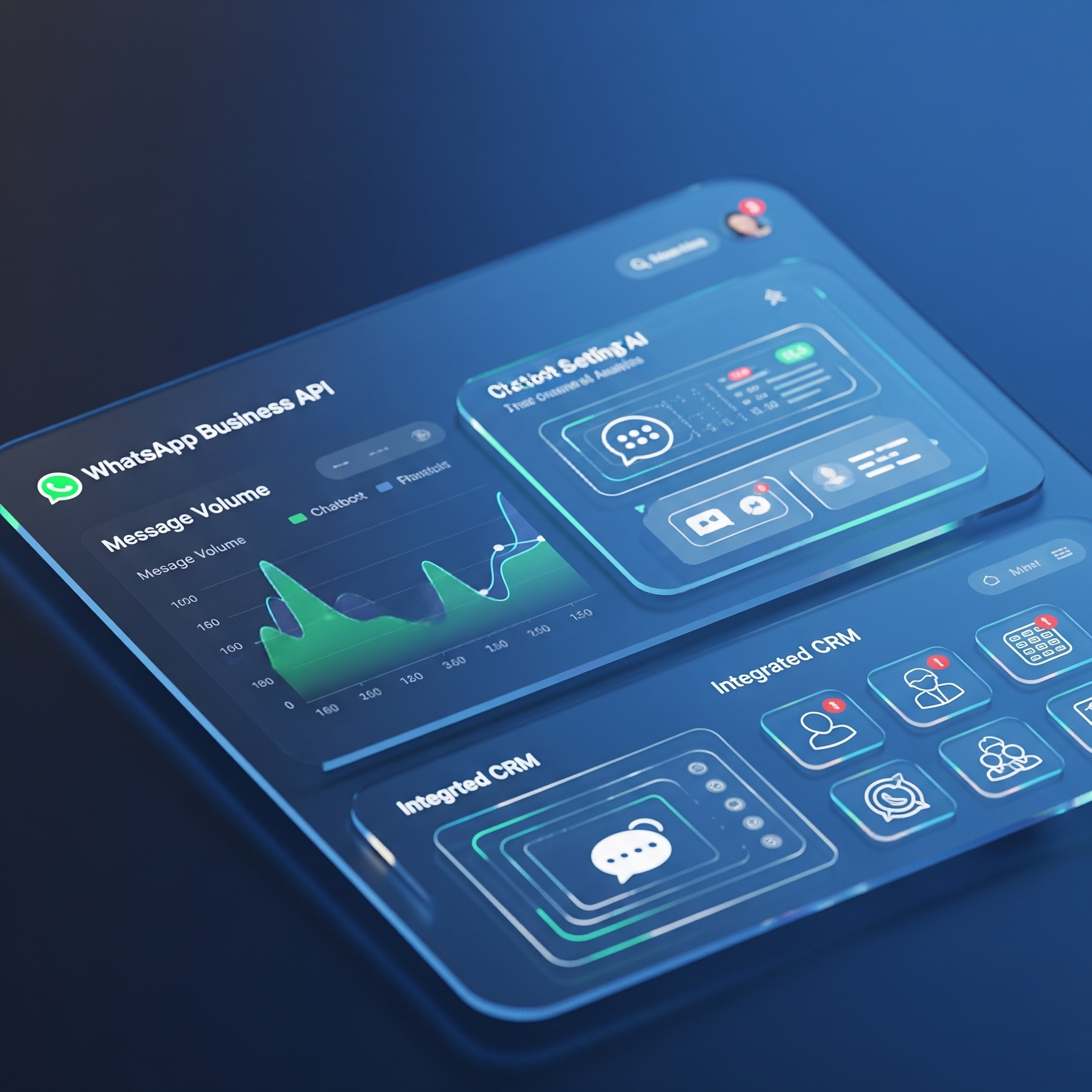In a world where instant communication drives customer loyalty, businesses must meet their audiences where they already are—on mobile messaging platforms. With over 2 billion active users worldwide, WhatsApp is no longer just a personal messaging app. It has evolved into a powerful business tool, especially with the introduction of the WhatsApp Business API.
Whether you’re a mid-size company or a growing enterprise, adopting the WhatsApp API for business is no longer optional—it’s a strategic necessity.
What Is WhatsApp Business API?
The business whatsapp api is a scalable communication platform developed by Meta to help businesses interact with customers efficiently and securely. Unlike the standard WhatsApp Business App, which is designed for small-scale, manual messaging, the API allows you to automate messages, integrate with backend systems, and handle high volumes of conversations.
In short, it bridges the gap between convenience and professionalism—making it possible to deliver real-time, personalized experiences at scale.
1. Meet Customers Where They Already Are
Today’s consumers expect fast, direct, and personalized communication. They don’t want to wait on hold or dig through emails. With WhatsApp being one of the most-used messaging apps globally, it’s a natural platform for businesses to engage customers.
Using the business WhatsApp API, you can:
- Send proactive updates (shipping notifications, appointment reminders, payment alerts)
- Respond to queries instantly with automated chatbots
- Provide human agent support within the same chat window
This level of accessibility fosters trust, boosts satisfaction, and reduces churn.
2. Improve Engagement and Open Rates
Emails often go unread. SMS messages are short-lived. But WhatsApp messages?
- Have a 98% open rate
- Are usually read within the first 5 minutes
- Enable rich media (images, PDFs, links, and buttons) for better interaction
This makes WhatsApp an ideal platform for marketing campaigns, service notifications, and customer follow-ups. With the WhatsApp API, you can schedule and automate these interactions, ensuring timely and consistent messaging.
3. Enhance Support With Automation
Customer support can make or break a brand. The WhatsApp Business API supports advanced automation through chatbots and AI, allowing businesses to resolve common questions 24/7.
For example:
- An e-commerce company can automate order tracking
- A bank can handle balance inquiries or fraud alerts
- A healthcare provider can confirm appointments and send reminders
When complex issues arise, the system can seamlessly route the customer to a human agent—ensuring speed and empathy are never compromised.
4. Scale Communication with Integration
The API integrates with:
- CRM systems (like Salesforce or HubSpot)
- Marketing platforms
- Customer service tools (like Zendesk or Freshdesk)
This means your teams can access chat histories, customer data, and purchase information all in one place—without switching platforms. It allows for smarter decisions, faster service, and highly personalized experiences.
5. Build Credibility and Security
Consumers are more privacy-conscious than ever. The WhatsApp API for business offers end-to-end encryption and verified business profiles, reassuring customers that they’re communicating with a legitimate, secure brand.
You also get access to features like:
- Verified business display name
- Business hours
- Contact buttons (website, call, email)
- Quick replies and labels
This professional profile not only adds credibility but also reinforces your brand’s commitment to secure and transparent communication.
6. Drive Conversions with Personalized Messaging
The power of the WhatsApp Business API lies in its ability to personalize communication at scale. By using data from your CRM or website, you can tailor messages based on:
- Purchase history
- Customer preferences
- Previous interactions
For example:
“Hi Priya, your skincare kit has just shipped! Track it here: [link]”
These timely and relevant messages enhance the customer journey, leading to higher engagement and improved conversion rates.
7. Stay Compliant and Organized
WhatsApp has strict guidelines to protect users from spam. With the API, you get tools to manage opt-ins, template messages, and session windows responsibly.
- You can only send promotional content after getting user consent
- Conversations are categorized (e.g., utility, authentication, marketing) for clear billing and policy adherence
- Templates must be approved by Meta, ensuring quality standards
By following these rules, businesses can maintain high message delivery rates and customer trust.
Who Should Use the WhatsApp Business API?
While the API is ideal for medium to large businesses, it’s especially useful for:
- E-commerce stores managing high order volumes
- Banks and fintechs needing secure, real-time communication
- Travel agencies sending booking confirmations and itineraries
- Healthcare providers offering appointment scheduling and test updates
- Educational institutions managing student engagement and alerts
If your business handles large-scale customer communication or wants to automate parts of its messaging workflow, the WhatsApp Business API is worth the investment.
Final Thoughts
The WhatsApp Business API isn’t just another tech tool—it’s a transformation in how businesses communicate, build trust, and grow sustainably.
It offers unmatched access to customers, secure and compliant messaging, and the ability to automate at scale. By implementing the API, your business can stay ahead of competitors, deliver better customer experiences, and drive higher engagement across the board.
What messaging tools have worked best for you? Comment below and share your experience!
